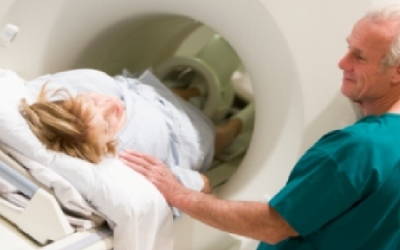Could a Simple CT Scan Be Used to Detect Osteoporosis?
There may be a bonus benefit to your run-of-the-mill abdominal CT scan – it could check if your wellbeing has been affected by osteoporosis. This is according to a new study published in the Annals of Internal Medicine, which found that CT scans give fairly similar results to dual-energy X-ray absorptiometry (DXA), which is traditionally used to diagnose the bone-weakening disease.
According to the study’s lead author Dr. Perry Pickhardt, professor of radiology at the University of Wisconsin School of Medicine and Public Health in Madison, ‘What we found is that there is pretty good correlation.’ The researchers explained that this could allow doctors to use patients’ CT scans that are ordered for another reason – such as looking for tumours – to also check for signs of osteoporosis. This could spare you from having unnecessary additional testing, which can become very costly to whoever’s footing the bill.
However, wellness experts gave a warning in an editorial accompanying the study; using CT scans to gauge bone density could lead to you being incorrectly diagnosed, particularly if you are at low risk and get tested. Dr. Sumit Majumdar, a professor of medicine at the University of Alberta in Canada, commented that CT scans are better tests, but stomach scans don’t include the hip, whereas a DXA would.
Yet Pickhardt and his colleagues argue that DXA scans, whilst safe and cost effective, are often underused. CT scans, on the other hand, are thought to be, if anything, overused. In the US, where the study took place, more than 80 million CT scans were performed during 2011. For the new study, the researchers looked at the test results of 1,867 patients, who had both types of scans performed within six months of each other over a 10-year period. Of the 23% of people who had developed osteoporosis, roughly 45% were diagnosed with some bone-weakening and about 32% were healthy based on their DXAs.
Dr. Beatrice Hull, from the Center for Osteoporosis and Bone Health at the Medical University of South Carolina in Charleston, commented that a CT scan won’t remove the need for a DXA scan. Hull, who wasn’t involved with the new research, said, ‘I don’t think at this point this one test is going to prevent further testing. I think it will identify patients who are at a higher risk and need more testing.’


Comments are closed.